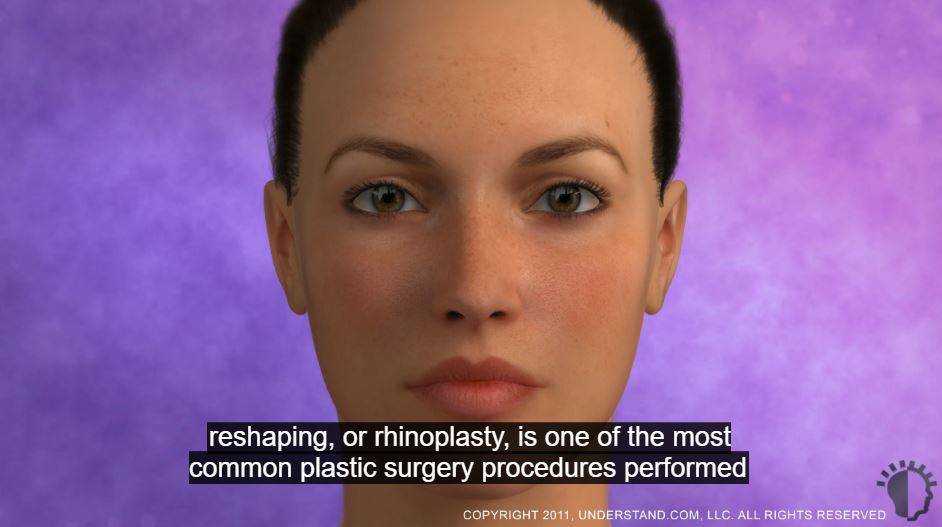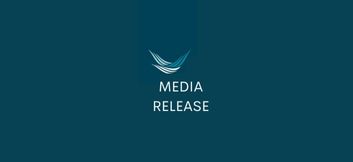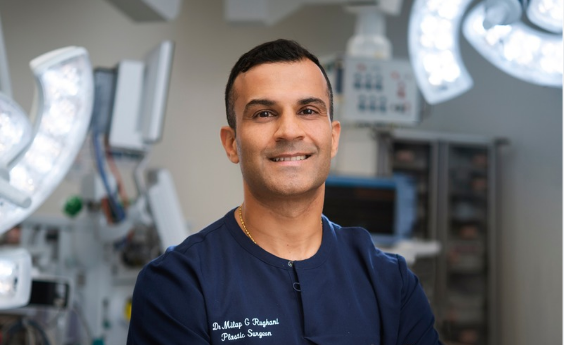Procedures
Nose Surgery
- About Your Specialist Plastic Surgeon
- Cosmetic
- Non-surgical Procedures
- Plastic Surgery Glossary
- Questions for Your Surgeon
- Reconstructive
- Surgical Procedures
- Abdominoplasty (cosmetic)
- Abdominoplasty (muscle repair postpartum)
- Arm Lift
- Body Contouring
- Body Lift
- Breast Asymmetry Correction
- Breast Augmentation (implants)
- Breast Implants with Lift
- Breast Lift
- Breast Reconstruction
- Breast Reduction
- Brow Lift
- Burns and Scarring
- Chest Surgery
- Chin Surgery
- Cleft Lip & Palate
- Ear Surgery
- Eyelid Reduction Surgery
- Facelift Surgery
- Facial Implants
- Facial Procedures
- Fat Injection
- Genital Reconfiguration Surgery
- Gluteal Augmentation or Buttocks Lift
- Gynaecomastia (male breast reduction)
- Hair Replacement Surgery
- Hand Surgery
- Labiaplasty
- Liposuction
- Lymphoedema Surgery
- Nipple Enhancement for Inverted Nipples
- Nose Surgery
- Scar Revision
- Skin Cancer
- Thigh Lift
- Tissue Expansion
- Voice Surgery
Nose Surgery
Any surgical or invasive procedure carries risks. Before proceeding, you should seek a second opinion from an appropriately qualified health practitioner.

Nose surgery, also known as rhinoplasty, is designed to reshape or repair the nose by improving the appearance and/or function of the nose. Another procedure associated with rhinoplasty and often performed at the same time is septoplasty, a procedure that opens up nasal passages blocked by a bent septum.
Nose surgery may be performed for cosmetic reasons or for reconstructive purposes, such as correcting breathing problems. Nose surgery can change the size of the nose as well as its width and profile. The nose tip, shape of the nostrils and balance of the nose (nasal symmetry) can also be altered.
Nose surgery aims to achieve the following results:
- Straighten a crooked nose
- Make the nose look more symmetrical (keeping in mind that perfect symmetry is not always possible)
- Make the nose a little smaller or larger
- Restore the height of a flattened area
- Alter the appearance of the nasal tip
- Reduce the size of large nasal openings
- Correct a hump deformity Improve the look of the nose in relation to the upper lip
- Correct birth defects
- Repair damage caused by injury
- Repair damage caused by disease, such as infection or cancer
- Open up nasal passages and improve breathing often by performing a septoplasty (surgery on the nasal septum as well as rhinoplasty)
Nose surgery is a highly individualised procedure and may not be suitable for everyone. Always talk to your Specialist Plastic Surgeon before making a decision. Your surgeon will assess your condition and general health, and plan the treatment that is best suited to you.
Before you decide on nose surgery, there are some important issues to keep in mind:
- Your surgeon can only work with the existing bone and cartilage structure, so there are limits to how far you can alter the shape of your nose
- If you need surgery to repair a broken nose, it is best to seek medical attention straight away. Otherwise, the swelling of the tissues can delay surgery for around five days
- Your surgeon will need to carefully evaluate your nasal structure to ensure that surgery does not interfere with breathing. This may prevent you from having certain procedures
- The final results may take up to 12 months to emerge, at which point your surgeon will assess the need for further surgery
- The bones of the face and nose need to fully mature before nose surgery can be performed. For boys, the nose will have taken its final shape by about 17 years, and a girl’s nose by about 16 years. Nose surgery performed while the nose is still growing can interfere with its normal growth and give unpredictable results
- Smokers are at increased risk of complications. If you are serious about undergoing surgery, you should quit smoking.
Nose surgery may not be a good option for you if you are:
- Not able to have an anaesthetic
- Prone to bleeding tendencies or have poor healing ability
- Too high risk of having surgical complications
Nose surgery may be a good option for you if:
- Your facial growth is complete
- You experience breathing problems
- You are self-conscious about the appearance of your nose
- You are physically healthy and you do not have medical conditions that can impair healing or increase risk of surgery
- You have realistic expectations of what nose surgery can accomplish
- You are a non-smoker or have stopped smoking
Most nose surgery procedures are performed under general anaesthesia. Modern anaesthesia is safe and effective, but does have some risks. Ask your Specialist Plastic Surgeon and anaesthetist for more information. Your surgeon and/or anaesthetist will ask you about all the medications you are taking or have taken, and any allergies you may have. Make sure you have an up to date list before the surgery.
Modern surgery is generally safe but does have the potential for risks and complications to occur.
Some general risks and complications of surgery may include:
- Heavy bleeding from an operated site
- Infection that may require treatment with antibiotics or further surgery in some cases
- Allergic reaction to sutures, dressings or antiseptic solutions
- The formation of a large blood clot (haematoma) beneath an incision site that may require drainage
- Pain, bruising and swelling around the operated site(s)
- Keloids and hypertrophic scars that are raised, red and thickened scars. These may form over the healed incisions. They may be itchy, annoying and unsightly but are not a threat to health
- Slow healing, often related to smoking or diabetes
- Separation of wound edges
- Short-term nausea following general anaesthesia and other risks related to anaesthesia
Specific risks and complications associated with nose surgery include:
- Pain that may be severe and ongoing
- Nose may feel numb or have altered sensation after the bruising and swelling subside
- The upper front teeth may feel numb temporarily
- The nose’s appearance may be unsatisfactory and require revisional surgery
- Sense of smell may be impaired, and in rare cases lost or distorted
- The nose may be slightly swollen for months
- Skin under the eyes may be darkened for a period of over six months
- Underlying support structure of the nose may be weak and cause the nose to flatten
- An implant (if one was inserted) may extrude into the nose or through the skin
- Major airways may become narrowed, causing difficulty in breathing through the nose
Before undergoing surgery, it is important that you:
- Be as fit as possible to help the recovery process
- Check with your surgeon about your medications as some may need to be stopped
- Stop smoking at least two weeks before surgery. Smoking increases surgical and anaesthetic risk and delays healing of the surgical site
You will also be asked to provide a complete medical history for your Specialist Plastic Surgeon including any health problems you have had, any medication you are taking or have taken, and any allergies you may have.
You may be advised to stop taking certain medicines such as non-steroidal anti-inflammatory drugs (NSAIDs), aspirin, and medicines that contain aspirin. You may also be asked to stop taking naturopathic substances such as garlic, ginkgo, ginseng and St John’s Wort as they may affect clotting and anaesthesia. Always tell your surgeon EVERYTHING you are taking.
Unless your surgeon advises differently, you will be able to continue taking most medicines that you have been taking.
Your surgeon will also advise you if any other tests are required, such as blood tests, X-ray examinations or an Electrocardiograph (ECG) to assess your heart.
Prepare a “recovery area” in your home. This may include pillows, ice packs, a thermometer and a telephone within easy reach. Make sure you arrange for a relative or friend to drive you to and from the hospital or clinic. Someone should also stay with you for at least 24 hours after you return home.
Your surgeon should give detailed preoperative instructions. Follow them carefully.
Arrange for a relative or friend to drive you home after the surgery. Someone should also stay with you for at least the first day after the operation and preferably for a few days.
If you experience any of the following symptoms, notify your surgeon immediate:
- Temperature higher than 38°C or chills
- Heavy bleeding from the incisions
- Worsening redness around the incision sites
- Increasing pain or tenderness, or other problems that appear to be worsening
After surgery, your nostrils may be packed with cotton or soft splints to help align the nasal septum. You may have a splint taped to the outside of your nose to encourage the nose to keep its new shape while it heals.
You may experience pain, headaches, inability to breathe through the nose and facial puffiness. Elevating your head will help these side effects to settle. Rest in bed with your head on a few pillows for the first 48 hours. Using an ice pack will also help reduce swelling. Your Specialist Plastic Surgeon will prescribe pain medication as required.
Do not blow your nose for at least seven days or rub your nose for a minimum of eight weeks. It is also important to protect your nose from sunburn and accidental knocks for at least eight weeks.
Avoid heavy lifting, strenuous exercise, swimming and strenuous sports until advised by your surgeon.
Your surgeon will give you specific instructions on post-operative care. These instructions may include:
- How to care for your surgical site(s) following surgery
- Medications to apply or take orally to aid healing and reduce the risk of infection
- Specific concerns to look for at the surgical site(s) or in your general health
- When to follow-up with your surgeon
- Do not smoke. Smoking contributes to wound breakdown and delayed healing along with other health problems.
Be sure to ask your surgeon specific questions about what you can expect during your individual recovery period, such as:
- Where will I be taken after my surgery is complete?
- What medication will I be given or prescribed after surgery?
- Will I have dressings/bandages after surgery? If so, when will they be removed?
- Are stitches removed? When will they be removed?
- When can I resume normal activity and exercise?
- When do I return for follow-up care?
Nose surgery is usually performed through the nostrils, which means there are no visible cuts (or subsequent scars) to the face. Occassionally scars will be placed between the nostrils or at the base of the nose.Your Specialist Plastic Surgeon will endeavour to minimise scarring and to keep your scars as inconspicuous as possible by locating the incisions in easily hidden sites. That way, scars will be along natural skin lines and creases. Scars may fade with time and become barely noticeable. If you are prone to scarring, you should advise your surgeon.
Cost is always a consideration in elective surgery. Prices for a tummy tuck can vary widely between Specialist Plastic Surgeons. Some factors that may influence the cost include the surgeon’s experience, the type of procedure used and the geographic location of the office.
Costs associated with the procedure may include:
- Surgeon’s fee
- Hospital or surgical facility costs
- Anaesthesia fees
- Prescriptions for medication
- Post-surgery garments
- Medical tests
Your surgeon should welcome any questions you may have regarding fees.
Cartilage:
Connective tissue that forms the structure of the nose
Columella:
The narrow strip of tissue that separates the nostrils
Deviated septum:
Cartilage that separates the nostrils is misaligned which may cause partial nasal airway obstruction
General anaesthesia:
Drugs and/or gases used during an operation to relieve pain and alter consciousness
Haematoma:
Blood pooling beneath the skin
Intravenous sedation:
Sedatives administered by injection into a vein to help you relax
Local anaesthesia:
A drug injected directly to the site of an incision during an operation to relieve pain
Rhinoplasty:
Surgery to reshape the nose
Septoplasty:
a procedure that opens up nasal passages blocked by a bent septum
Visit the Plastic Surgery Glossary for more medical terms.
This website is intended to provide you with general information only. This information is not a substitute for advice from your Specialist Plastic Surgeon and does not contain all the known facts about this procedure or every possible side effect of surgery. It is important that you speak to your surgeon before deciding to undergo surgery. If you are not sure about the benefits, risks and limitations of treatment, or anything else relating to your procedure, ask your surgeon to explain. Patient information provided as part of this website is evidence-based and sourced from a range of reputable information providers including the American Society of Plastic Surgeons, Better Health Channel and Mi-tec medical publishing.
Featured Stories

ASPS welcomes new Ahpra guidelines for Non-Surgical Cosmetic Practitioners
Sydney. June 3, 2025: The Australian Society of Plastic Surgeons…
Continue reading

